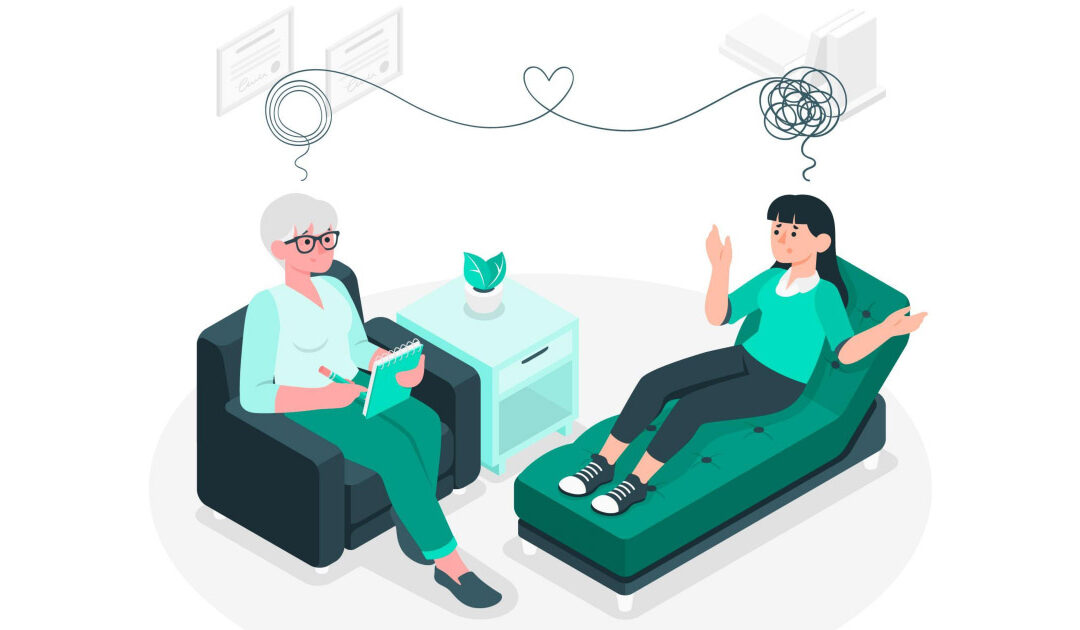Photo Credit: Freepik.com
It can be intimidating or overwhelming to get ready for your first therapy session. You should be pleased with yourself because starting therapy is a courageous decision, not an easy one. Remember you don’t have to “feel ready” before you start! You can feel any emotions at the beginning and through the process.
Questions you may think of asking your therapist in the beginning:
- What is your therapy approach? This will help you understand how the therapist works and what to expect from therapy.
- What are your areas of expertise? This will help you determine if the therapist fits your needs well.
- How long have you been practising therapy? This will give you an idea of the therapist’s experience.
- What are your fees? This is important to know so that you can budget for therapy.
- What are your thoughts on confidentiality? This will help you understand how your information will be protected.
- How long is each session? This will help you plan your time accordingly.
- How often do we meet? This will depend on your needs and the therapist’s availability
- What are your thoughts on medication? If you are considering medication, this is an important question to ask.
- What are your thoughts on therapy goals? This will help you define what you hope to achieve in therapy.
- What are your expectations for therapy? This will help you and your therapist set goals for therapy.
- How will I know if I’m getting better? This will help you know how your progress is charted and how you can keep note of your progress
- Can I bring a friend or family member to a session some time? If you want a support system with you, you can ask your therapist about their policies for the same.
Ideally, your therapist should provide these details to you in an informed consent form before you begin therapy with them, if they don’t, remember that you have the right to this information.
Depending on many factors, here are some things you may expect during the first session:
- The therapist may ask you questions about your history and why you are seeking therapy.
- The therapist may gather information about your background and your current situation.
- The therapist may try and understand what help you are looking for from therapy
- The therapist may explain their therapeutic approach and what to expect from therapy.
- The therapist may discuss confidentiality and how your information will be protected.
- The therapist may give you some homework to do between sessions.
It is normal to feel nervous during your first therapy session, here are some things that may help:
- Remember that the therapist is there to help you.
- Do your research and choose a therapist with whom you feel comfortable.
- Prepare a list of questions to ask your therapist.
- Be open and curious about the experience.
- If you are feeling nervous, let the therapist know.
- Remember that you can always end the session if you are not comfortable.
It is also important to remember that therapy is a process. It takes time to build trust and rapport with a therapist. So don’t expect to feel better after your first session. But if you are willing to put in the work, therapy can be a valuable resource for you. It is also important to note that, it’s acceptable to choose a new therapist to work with if you feel dissatisfied after a couple of sessions. It is advisable to let the current therapist know that you will not be continuing with them.
Some warning indications that this therapist isn’t right for you are as follows:
- You experience an uneasy relationship with the therapist.
- You do not observe any development toward change.
- You’ve left each session feeling lost or discouraged.
If you are still hesitant to go to therapy, read our blog on things that can help if you are hesitant to take therapy.
Bonus tips:
- Keep some tissues and a water bottle handy: It is absolutely normal to cry in therapy sessions. Crying is a great release for the body and should not be seen as a weakness. This is why a therapist will certainly have water and tissues available but you can also carry your own if you prefer.
- Block out some space before and after therapy: As therapy sessions might get heavy, it is better to block out some time to process all the feelings and emotions before going back to your day. Blocking out additional time before and after your session, whether it’s your first appointment or follow-ups, can reduce tension and give you time to process the work you and your therapist achieved during the session.
Book your first therapy session, TODAY!
– Urveez Kakalia and Sakshi Merai.

